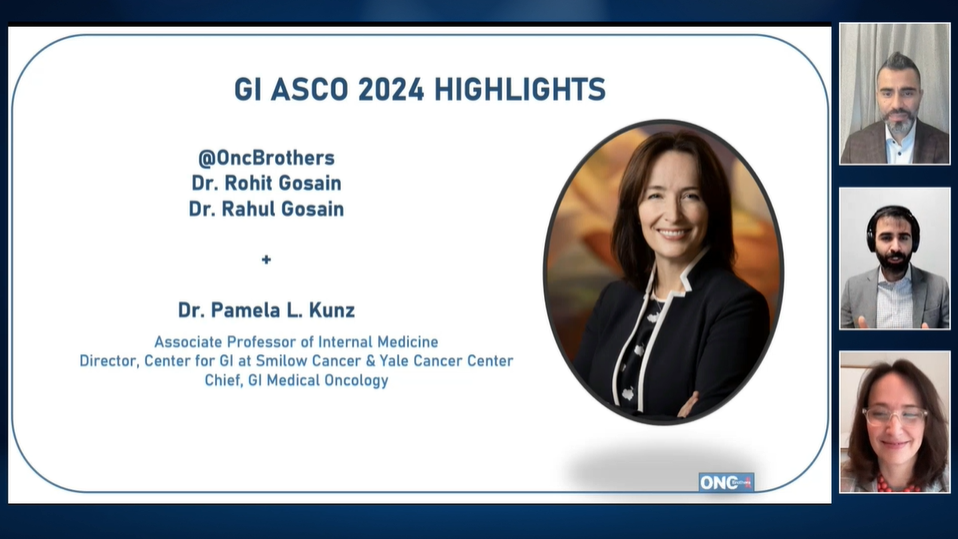FDA Approves Nivolumab/Ipilimumab Combo in MSI-H/dMMR mCRC
Based on data from the phase 3 CheckMate-8HW trial, the combination of nivolumab and ipilimumab has been approved by the FDA in metastatic colorectal cancer.
US FDA

- The FDA approved nivolumab (Opdivo) plus ipilimumab (Yervoy) as first-line therapy for adult and pediatric patients (≥12 years) with microsatellite instability–high (MSI-H) or mismatch repair deficient (dMMR) metastatic colorectal cancer.
- The FDA also converted nivolumab monotherapy’s accelerated approval to full approval in previously treated patients.
- Phase 3 CheckMate-8HW trial (NCT04008030) data showed significantly improved progression-free survival (PFS) with the combination versus chemotherapy.
The combination of nivolumab with ipilimumab as a first-line treatment for adult and pediatric patients 12 years of age and older with MSI-H/dMMR metastatic colorectal cancer has been approved by the FDA.1
In addition, the FDA converted the accelerated approval to regular approval for single-agent nivolumab for adult and pediatric patients 12 years of age and older with MSI-H or dMMR metastatic CRC that has progressed after treatment with fluoropyrimidine, oxaliplatin, and irinotecan.
This approval is supported by data from the phase 3 CheckMate-8HW trial, which showed there to be statistically significant and clinically meaningful improvements in progression-free survival (PFS) vs investigator’s choice of chemotherapy. Among 255 patients with centrally confirmed MSI-H or dMMR tumors, the median PFS was not reached (95% CI, 38.4 to not estimable [NE]) in the frontline nivolumab/ipilimumab arm (n = 171) vs 5.8 months (95% CI, 4.4-7.8) in the frontline chemotherapy arm (n = 84; HR, 0.21; 95% CI, 0.14-0.32; P <.0001). For overall response rate (ORR) and overall survival (OS), comparative results were not available at the time of the interim PFS analysis due to statistical testing strategy.
Microscopic image of gastric tumor cells - Generated with Google Gemini AI

“There is an unmet need for additional treatment options such as a dual immunotherapy approach for patients with previously untreated MSI-H/dMMR unresectable or metastatic CRC, which is an aggressive form of cancer and can be particularly difficult to treat,” said Heinz-Josef Lenz, MD, CheckMate-8HW investigator and deputy director for research programs and head of the gastrointestinal cancers program at the USC Norris Comprehensive Cancer Center.2 “The meaningful outcomes in CheckMate-8HW underscore how initiating treatment with the dual immunotherapy combination of nivolumab plus ipilimumab may result in a notable survival benefit.1,5 This approval has the potential to redefine traditional approaches of care for patients with this form of CRC.”
In a subset of 582 patients with centrally confirmed MSI-H/dMMR status (from an initial 707 identified via local testing), outcomes were compared between nivolumab plus ipilimumab and nivolumab monotherapy across all lines of therapy. The median PFS was not reached in the combination arm (95% CI, 53.8 to NE) vs 39.3 months in the nivolumab arm (95% CI, 22.1 to NE), with a hazard ratio of 0.62 (95% CI, 0.48-0.81; P =.0003). The ORR was 71% (95% CI, 65%-76%) with the combination and 58% (95% CI, 52%-63%) with monotherapy (P =.0011). OS data were not available at the time of interim PFS analysis due to the study's predefined statistical testing plan.
Additionally, the safety profile of the combination was manageable, consistent with prior data, and there were no new safety signals identified. The most common adverse events (AEs) seen in at least 20% of patients given the combination were fatigue, diarrhea, pruritus, abdominal pain, musculoskeletal pain, and nausea. The most common AEs seen in 20% of patients or more who were treated with nivolumab as a single agent were fatigue, diarrhea, abdominal pain, pruritus, and musculoskeletal pain.
About CheckMate-8HW
In the randomized, open-label, phase 3 CheckMate-8HW trial, the combination of nivolumab with ipilimumab is being compared with either nivolumab as a monotherapy or investigator’s choice of chemotherapy in patients with MSI-H or dMMR mCRC.3
Enrollment was open to patients with known tumor MSI-H or dMMR status per local standard of practice and an ECOG performance status of 0 or 1. In part 1, patients must have had histologically confirmed recurrent or metastatic CRC irrespective of prior treatment history with chemotherapy and/or targeted agents not amenable to surgery. In part 2, patients were required to have histologically confirmed recurrent or metastatic CRC with no prior treatment history with chemotherapy and/or targeted agents for metastatic disease and not amenable to surgery.
Investigators evaluated the dual primary end points of PFS per blinded independent central review (BICR) for the experimental combination vs investigator’s choice of chemotherapy in the first-line setting and PFS per BICR for the combination compared with nivolumab alone across all lines of therapy.








